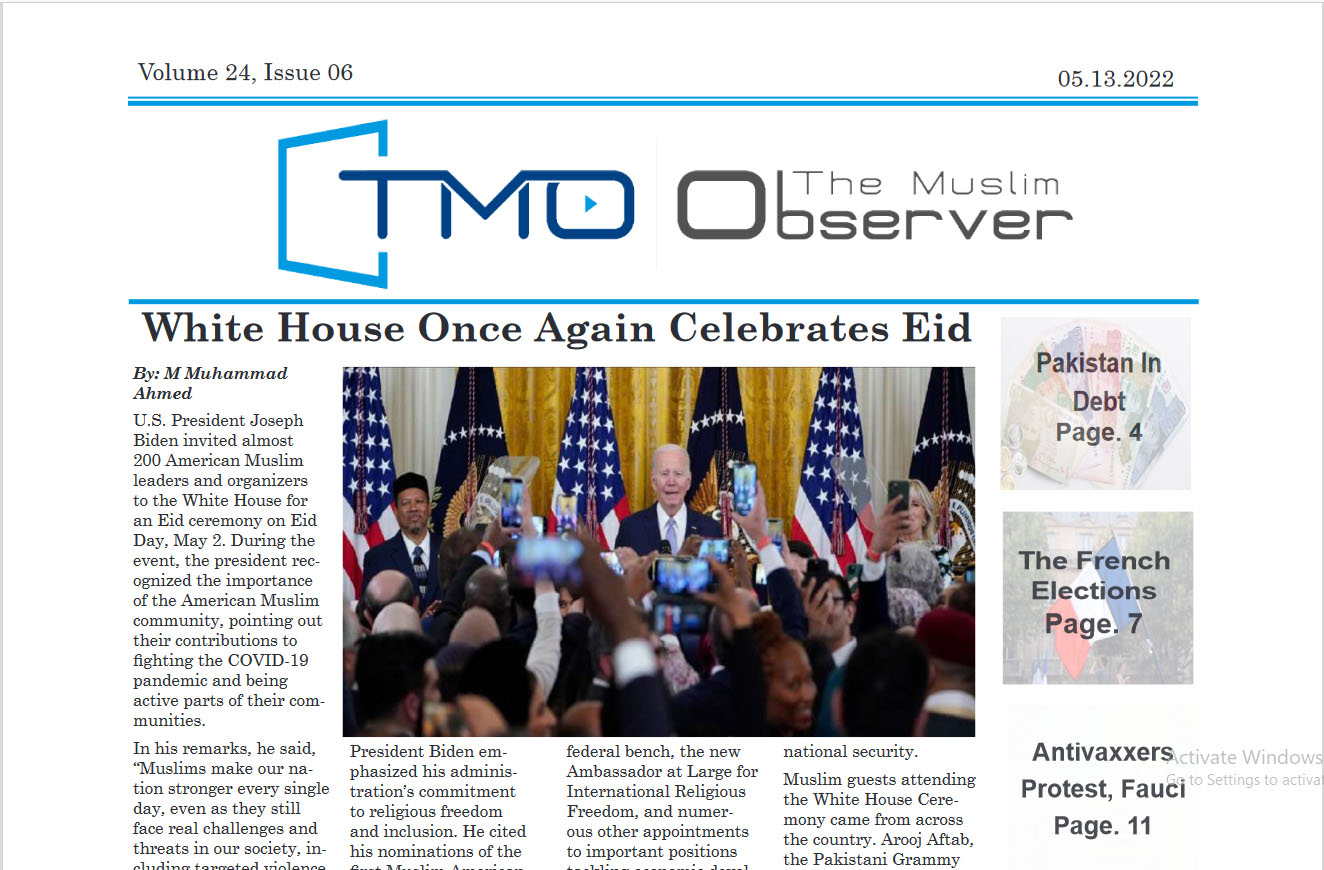Do Jews Consider Jesus A Liar & False Prophet?
by Dr. Aslam Abdullah.
No Jew accepts Jesus as the Messiah. When someone makes that faith commitment, they become Christian. Someone can’t be both Christian and Jewish.
Mike Johnson, the Republican speaker of the House and overwhelming Christian leaders in Democratic and other parties in the US, assert that the Bible asks them to support Jews.
This idea has played havoc in our world for at least one hundred years. Thousands of lives have perished. Injustices and violence reign supreme in the Middle East, and American taxpayers work as enslaved people to raise funds to sustain the Jewish state, even at their own expense financially. Israel has a blind US check and extorts money in the name of anti-Semitism at its will. Why is that so when Jews describe Jesus, the God of Christianity, as a false Prophet and liar?
Judaism does not accept Jesus of Nazareth as the Messiah or “the Son of God.” Its rejection of Jesus holds that the coming of the true
Messiah will be associated with events that have not yet occurred, such as the rebuilding of The Temple, a Messianic Age of peace, and the in gathering of Jews to their homeland.
Many Jewish writers and scholars consider Jesus as the most damaging “false prophet.” Judaism does not accept any of the claimed fulfillment of prophecy that Christianity attributes to Jesus. Jews regard the idea of God as a duality or trinity heretical or polytheistic. The Torah rules out a trinitarian God in Deuteronomy (6:4): “Hear Israel, the LORD is our God, the LORD is one.” The Jerusalem Talmud states explicitly: “If a man claims to be God, he is a liar.”
In the 12th century, the preeminent Jewish scholar Maimonides codified core principles of Modern Judaism, writing, “[God], the Cause of all, is one. His 13 principles of faith include the concept that God has nobody and that physical concepts do not apply to him. The “Yigdal” prayer, found towards the beginning of the Jewish prayer books used in synagogues around the world, states, “He has no semblance of a body nor is He corporeal”. It is a central tenet of Judaism that God has no physical characteristics.
Judaism’s idea of the Messiah differs substantially from Christianity. In orthodox Rabbinic Judaism, the Messiah’s task is to bring in the Messianic Age, a one-time event. A presumed messiah killed before completing the job is not the Messiah.
Jews believe that the Messiah will fulfill the messianic prophecies of the prophets Isaiah and Ezekiel. Judaism interprets Isaiah 11:1 (“And there shall come forth a shoot out of the stock of Jesse, and a twig shall grow out of his roots.”) to mean that the Messiah will be a patrilineal bloodline descendant of King David. He will return the Jews to their homeland and rebuild the Temple, reign as king, and usher in an era of peace and understanding where “the knowledge of God” fills the earth, leading the nations to “end up recognizing the wrongs they did Israel.” Ezekiel states the Messiah will redeem the Jews.
The Jewish view does not consider Jesus, a patrilineal bloodline descendant of King David. He never reigned as king, and there was no subsequent era of peace or excellent knowledge. Jesus died without completing or even accomplishing part of the messianic tasks. The Christians say it will occur at the Second Coming.
According to the Torah (Deuteronomy 13:1–5 and 18:18–22), the criteria for a person to be considered a prophet or speak for God in Judaism are that he must follow the God of Israel (and no other god); he must not describe God differently from how he is known to be from Scripture; he must not advocate change to God’s word or state that God has changed his mind and wishes things that contradict his already-stated eternal word.
Deuteronomy 13:1 says, “Be careful to observe only that which I enjoin upon you; neither add to it nor take away from it.”
Even if someone who appears to be a prophet can perform supernatural acts or signs, no prophet or dreamer can contradict the laws already stated in the Bible. Thus, any divergence espoused by Jesus from the tenets of biblical Judaism would disqualify him from being considered a prophet in Judaism.
Judaism does not share the Christian concept of salvation, as it does not believe people are born in a state of sin.
Maimonides sums up the Jewish thought on Jesus in the following words:
“Concerning Jesus of Nazareth, who imagined himself to become the Messiah and was put to death by the court, the Prophet Daniel said already: “Also, the rebellious sons of thy people will lift themselves to establish the vision; but they will stumble.” (Dan.11,14) And can there be a more significant stumbling block than this: All the prophets affirmed that the Messiah would redeem Israel, save them, gather their dispersed and strengthen the commandments, but he caused Israel’s destruction by the sword, their remnants scattered, and humiliated, their changing the Torah, and misleading the world to serve gods besides the Lord.
Yet no man can grasp the thoughts of (the Lord) the world’s Creator. For our ways are not His ways, and our thoughts are not His thoughts; And all these ways of Jesus of Nazareth and This Ishmaelite who rose after him, were only to clear the way for Messiah the King.” … .” when the Messiah will arise. He will succeed and reign supreme. At once, they shall all return and know that they inherited lies from their forefathers and that their prophets and forefathers have misled them. (Hilkhot Melakhim 11:10–12.)

















2023
2,918 views
views
0
comments